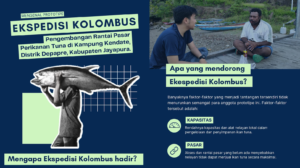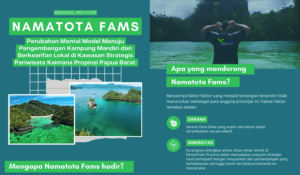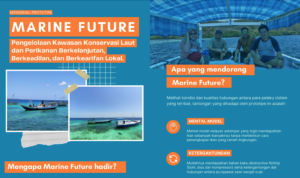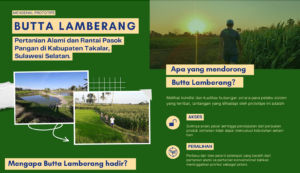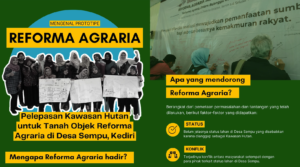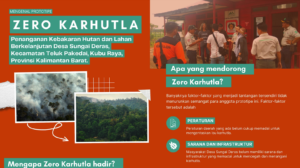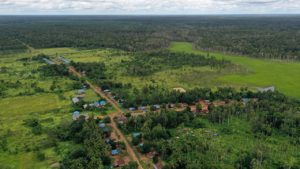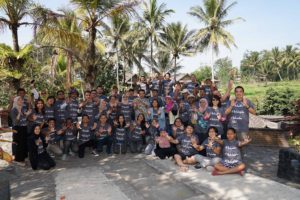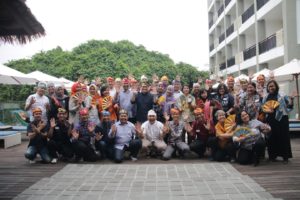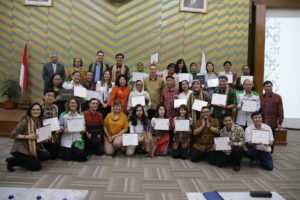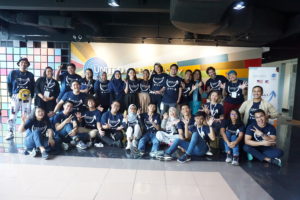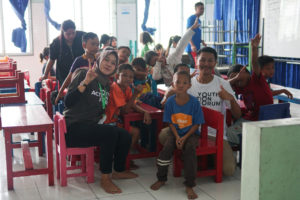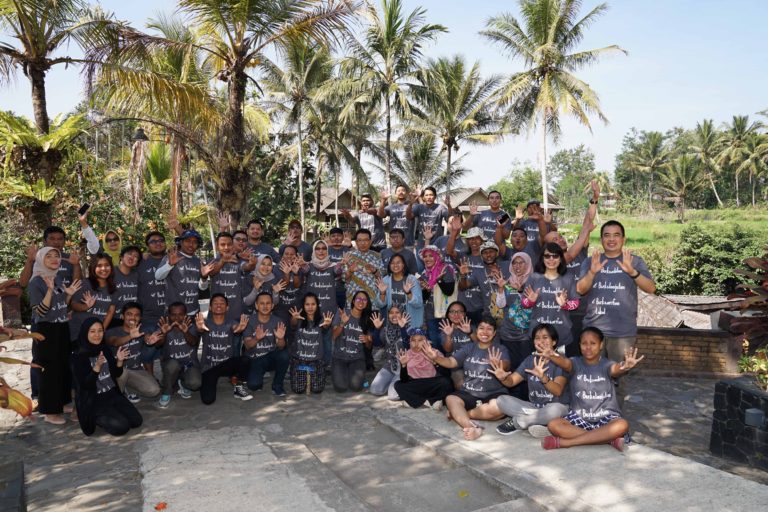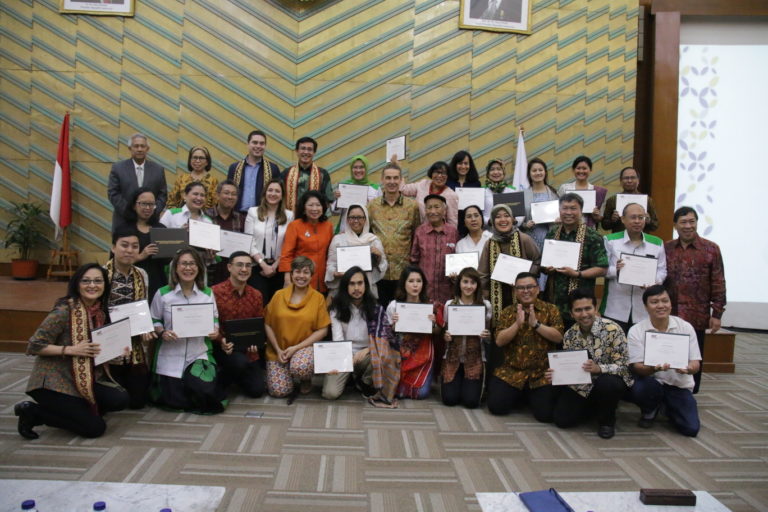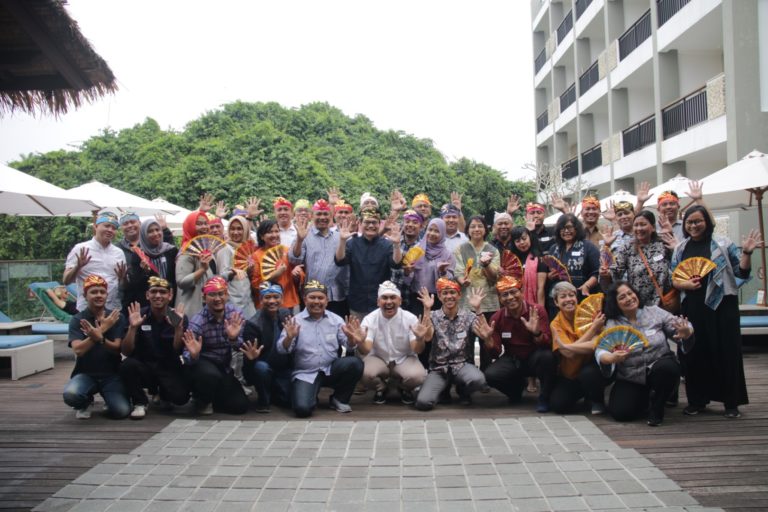You could be among the few to have experienced economic liberation through a koperasi activity; you could also be among the few to think that you have been fortunate to have not had a koperasi encounter.
Sadly and unjustly, when it concerns knowledge on koperasis, you are likely to fall under one of the two categories — or rather… two extremes. As a koperasi activist and someone who’s participated in koperasi activities — I’ve always seen the former as the fortunate few. However, to really understand the latter, we need to acknowledge a bitter history.
There is a known stigma surrounding the koperasi space in Indonesia. Koperasis are notoriously known for and tainted with fraud since the era of the ”New Order”. A little bit of misfortune? Perhaps a little more that that. The koperasi-based civil economy idea never truly materialized since the Soekarno-Hatta pair deemed it Indonesia’s economic pillar and an instrument to combat capitalism.
There is an apparent paradigm shift and although It’s much easier to sit among conspiracy theorist to justify this, lets deep dive and look at facts as to why some koperasis in Indonesia fail. Koperasis were, and still is one of the single most effective ways to gather the masses to come together under one agenda — so it’s no surprise that koperasis have long been leveraged as a political tool. This started as early as President Soekarno’s pledge to collectively ward off capitalism through to President Soeharto’s quest — though koperasi lobby — for total agrarian control.
Of course the whole political frenzy left a bitter taste and that trauma did a number of things:
- Koperasis falling in their relevance to current context because history taught koperasis to be very cautious when collaborating external institutions — especially governmental and political institutions. This paradigm also hurts businesses looking to serve the koperasi space;
- History also taught koperasis reluctance to becoming fully transparent. As a result, koperasis are widely viewed as unaccountable;
- Koperasis lack trust and have become very exclusive and thus having very small member size.
All these reasons make it harder for koperasis to scale and compete. Of course, if you’re taking a helicopter view it’s easy to pass the verdict and map out what you think the underlying problems are, but to really understand a system, you must not see it as something that is out there and independent to you, but rather to see yourself as part of the system. On a micro level I began talking to koperasi personnels to find out what makes them tick, what motives them to come to work, and/or what makes them hate their work to find out exactly where the source of koperasi problems are rooted. I’ll use the Iceberg Model to explain this:
Image taken from: http://www.kelvybird.com/iceberg/
- Event: Koperasi edge cases in the media
- Patterns/Trends: Misuse of koperasi funds by management
- Underlying structure(s): Low transparency and accountability make it easy for koperasi management execute fraud
- Mental Models: “This is an opportunity for me to capitalize and make money off the circumstances. Others before me have done it too!”
- Source: “I need to make ends meet”
I mapped out a few problems based on this this theory and they are centered towards the welfare of koperasi members and staff. To address this, I will expand the argument to the following causes:
High operational expenses making it hard for non Kopkars (employee-based/corporate koperasis) to prosper
- Most koperasis in Indonesia fall under the traditional “KSP” or savings and loans koperasi. KSP record very high volumes of transactions meaning koperasis carry out a lot of transactions daily. The fact that koperasis operate conventionally does not help their cause at all.
- I have found that these koperasis fall victim to switching-fee/transaction costs incurred from making transaction between different banks. This is a common circumstance because koperasis have many members banked at a banking institution that is different to where the koperasis is banked at. Kopkars (employee-based) koperasis does not fall under this category because transactions are governed by HR with payroll as a payment medium — which involves only one banking institution.
- The problem in Indonesia is that you get charged Rp.6500 ($ 0.46) for making transactions within different banking institutions. If the koperasis are making payments to members, the koperasi bares the cost. Likewise, members bare the cost when making payments to the koperasi. It may seem insignificant when you’re executing 1–5 transactions, but an average well-run KSP makes > 1000 of these types of transactions daily. That’s a big price to pay in a developing country!
Organizational effectiveness is lacking for KSP
- The fact that most koperasis operate with pen and paper or Microsoft Excel at best means that that koperasi employees spend most of their day doing non-added-value administrative tasks like writing receipts and updating transactions or member data on Excel. This takes away a lot of time for koperasi management to strategize on accelerating the koperasi.
Koperasis that are less transparent/accountable remain exclusive or small in member size
- Is it no secret that koperasis less transparent will likely struggle to register new members. Not being able to recruit or register new members will hurt a koperasi. Koperasis operate through equity crowdfunding and will really only gain momentum in numbers. In other words, the bigger the member base, the stronger its financial arsenal.
Before joining the VIS founding team, I was involved in initiating a koperasi in Yogyakarta. In my time there I did comparative studies to learn more about how and why koperasis in other parts of the world fare better. One thing that caught my eyes and became more apparent that others was the fact that koperasis abroad were able to engage the whole value chain or entire ecosystem of the sector and industry that are in — an area many Indonesian koperasis still struggle with.
There is also two sides to the coin when it concerns being solutive: A non-objective “talk the walk” solution vs an objective “walk the talk” most immediate opportunity.
Non-objective solution:
I often hear my countrymen scream the need for “mentality change” as an immediate solution for the major and reoccurring problems the country is facing. If we were more objective we know that’s not possible. To explain why, I want you to take a look at Maslow’s Hierarchy of needs theory below:
Image taken from: https://www.verywellmind.com/what-is-maslows-hierarchy-of-needs-4136760
To achieve a “mentality change”/paradigm shift — we know that individual(s) would have to arrive at the top of the pyramid which is to have one’s self-actualization needs fulfilled. Maslow clearly illustrates that to get to that stage, more fundamental needs must first be addressed — starting with the most basic need: Physiological needs. All leaders should know that — for a mentality change/change in attitude — necessities such as food, shelter, and clothing must be something that they can secure to everyone under their leadership. To boil it down, people are less likely to collaborate or change their views before they can take their minds off their most basic needs. Mentality change is a process that is not immediate and goes in parallel with prosperity.
Most immediate opportunity for koperasis:
To address the welfare of koperasi members and its staff means we first have address the health and well-being of the koperasi institution itself. This is so that members and management (also members) can reap the benefits of their contribution. There is no more immediate opportunity right now than to leverage technological advancements to streamline business processes, cut operational expenses, and in turn accelerate the koperasi after making it more transparent and accountable. Strategic change to koperasi management is key to the koperasi prospering. Only with the koperasis prospering can they address the most basic needs of members and only then will this ecosystem arrive at economic democracy.
Article Link:
https://medium.com/vis-indonesia/an-inconvenient-truth-7c5002832004



